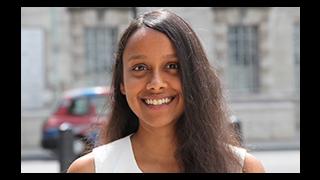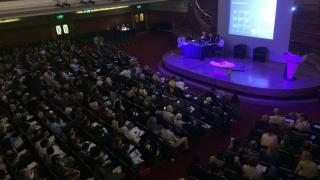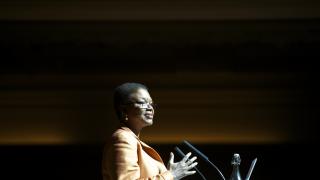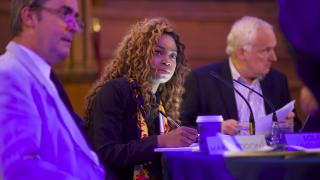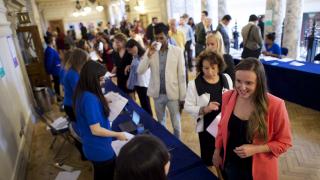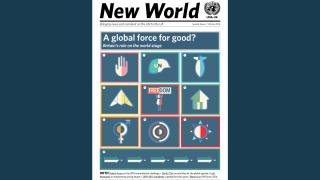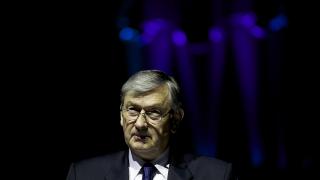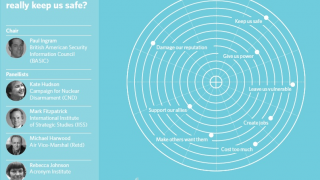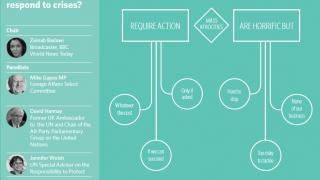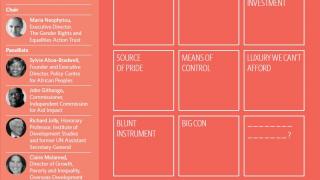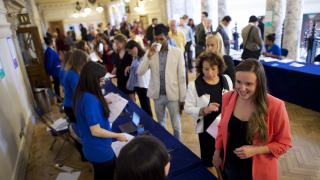
An organisation made up of almost every country in the world; that aims to promote peace, security and development; that champions young people and puts issues that matter to them, like education, at the top of the global agenda – the question could be: why shouldn’t young people care about the UN?
But it’s not that simple, of course, so I want to share a few thoughts on why the UN should be of interest to all young people and how to address some of the challenges to youth involvement.
For young people understanding and participating in global governance is essential. We care about global issues, like climate change and inequality. We want to share, learn, communicate and collaborate with youth around the world on how to tackle them. The UN World Programme of Action for Youth (WPAY) states that youth participation is “vital for the continuing development of the societies in which they live”.
Decisions that affect our lives are made at the UN, and we have a right to be heard. My work as a Vice Young Mayor in London, and now as Commonwealth Youth representative, has always been underpinned by the UN Convention on the Rights of the Child (CRC). The Convention sets out the right of children and young people to participate in decisions that affect them. There is a lot of crossover between the themes covered by the Commonwealth and UN, and I am now beginning to engage more with the UN system. The CRC is a good entry point.
Channelling youth
There are many channels for young people to engage with the UN. There is the UN youth delegate programme, under which some governments sponsor young people to be part of their UN delegations; there are UN youth groups that work on specific issues, such as climate change; and youth boards or advisory groups for UN bodies, like the UN-Habitat Youth Advisors.
The UN also supports global youth meetings, like the World Urban Youth Forum, and provides youth-friendly information, like the UN Environment Programme’s TUNZA magazine. There has been real commitment to youth involvement in the post-2015 development discussions. And last year, the Secretary-General appointed an Envoy on Youth.
But the UN can seem daunting to many young people. It’s a complex organisation and most young people I meet have very little understanding of it. They feel very distant from decisions and discussions at the UN. Sometimes it seems as though you need to be in New York to get involved and despite the examples I mentioned above, information from and about the UN is not always youth-friendly.
It’s also difficult to know the best entry points, especially if you are not part of an organisation that is already involved with the UN. There’s no standard national-to-UN level participation process, and only a few countries run youth delegate programmes (the UK does not). There is also no clear coordination of youth engagement across the UN.
What can be done? First, states should live up to the principle of youth articipation enshrined in the CRC and WPAY. This could take the form of a properly supported youth delegate programme or ‘structured dialogue’ between young people and decisionmakers, for example.
Second, we need to reach young people at a local level, by making links between their everyday lives and what is happening around the world. This means highlighting the impact of global issues on the things they care about as well as the impact that they can have by taking action.
Third, young people should be supported as partners and leaders in local and national decision-making. By getting involved in their communities, young people can learn about, and contribute to, policies and programmes, which can help them to understand how these things work at the international level.
Finally, we need to increase understanding of the UN, what it does and how it works. We need more accessible spaces, forums and channels to help young people navigate global decision-making and intergovernmental processes. Better global citizenship education would help, as would youth-led, peer-to-peer engagement, and more hands-on opportunities like the Model UN events that UNA-UK supports.
Young people care about the world and given the chance, they would engage in UN debates and get involved in global campaigns. I hope that through the British Youth Council and our UK Young Ambassadors programme we can help inspire greater UN youth engagement by providing platforms for young people, raising awareness, and signposting information and opportunities.
Lola Mustapha was elected by the British Youth Council to represent young people in the UK at the Commonwealth Youth Forum last year and now serves on the Commonwealth Youth Council. She can be contacted on international@byc.org.uk

